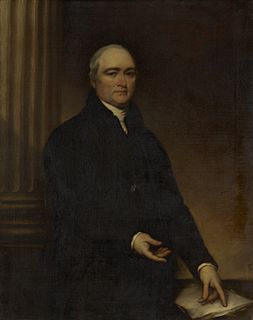A Quote by Mahatma Gandhi
Hinduism is a living organism. One and indivisible at the root, it has grown into a vast tree with innumerable branches. Knowledge is limitless and so also the application of truth. Everyday we add to our knowledge of the power of Atman (soul) and we shall keep on doing so.
Related Quotes
Hinduism is a living organism liable to growth and decay subject to the laws of Nature. One and indivisible at the root, it has grown into a vast tree with innumerable branches. The changes in the season affect it. It has its autumn and its summer, its winter and its spring. It is, and is not, based on scriptures. It does not derive its authority from one book. Non violence has found the highest expression and application in Hinduism.
We should not be content to say that power has a need for such-and-such a discovery, such-and-such a form of knowledge, but we should add that the exercise of power itself creates and causes to emerge new objects of knowledge and accumulates new bodies of information. ... The exercise of power perpetually creates knowledge and, conversely, knowledge constantly induces effects of power. ... It is not possible for power to be exercised without knowledge, it is impossible for knowledge not to engender power.
We ask the leaf, "Are you complete in yourself?" And the leaf answers, "No, my life is in the branches." We ask the branch, and the branch answers, "No my life is in the root." We ask the root, and it answers, "No my life is in the trunk and the branches and the leaves. Keep the branches stripped of leaves, and I shall die," So it is with the great tree of being. Nothing is completely and merely individual.
But it can also happen, if will and grace are joined, that as I contemplate the tree I am drawn into a relation, and the tree ceases to be an It. . . . Does the tree then have consciousness, similar to our own? I have no experience of that. But thinking that you have brought this off in your own case, must you again divide the indivisible? What I encounter is neither the soul of a tree nor a dryad, but the tree itself.
The true bounds and limitations, whereby human knowledge is confined and circumscribed,... are three: the first, that we do not so place our felicity in knowledge, as we forget our mortality: the second, that we make application of our knowledge, to give ourselves repose and contentment, and not distates or repining: the third, that we do not presume by the contemplation of Nature to attain to the mysteries of God.
We have heard of a Society for the Diffusion of Useful Knowledge. It is said that knowledge is power, and the like. Methinks there is equal need of a Society for the Diffusion of Useful Ignorance, what we will call Beautiful Knowledge, a knowledge useful in a higher sense: for what is most of our boasted so-called knowledge but a conceit that we know something, which robs us of the advantage of our actual ignorance? What we call knowledge is often our positive ignorance; ignorance our negative knowledge.
There's the tree with the branches that everyone sees, and then there's the upside-down root tree, growing the opposite way. So Earth is the branches, growing in opposing but perfect symmetry. The branches don't think much about the roots, and maybe the roots don't think much about the branches, but all the time, they're connected by the trunk, you know?
Every woman who has had experience with sexual violence of any kind has not just pain, and not just hurt, but has knowledge. Knowledge of male supremacy. Knowledge of what it is. Knowledge of what it feels like. And can begin to think strategically about how to stop it. We are living under a reign of terror. Now what I want to say is that I want us to stop accepting that that's normal. And the only way that we can stop accepting that that's normal is if we refuse to have amnesia everyday of our lives.
For successful education there must always be a certain freshness in the knowledge dealt with. It must be either new in itself or invested with some novelty of application to the new world of new times. Knowledge does not keep any better than fish. You may be dealing with knowledge of the old species, with some old truth; but somehow it must come to the students, as it were, just drawn out of the sea and with the freshness of its immediate importance.









































